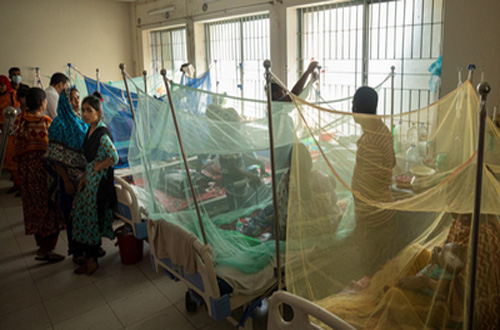Former Miss World Uruguay Sherika De Armas dies due to cervical cancer

- Update Time : Tuesday, 17 October, 2023, 03:22 pm
- 110 Time View

Online Desk: Former Miss Uruguay Sherika De Armas, who represented Uruguay in the 2015 Miss World pageant, has sadly passed away at the mere age of 26 due to cervical cancer, as reported by the New York Post.
De Armas had been battling this illness for two years and had undergone chemotherapy and radiotherapy treatments. The heartbreaking news of her passing was shared on social media by her brother, Mayk’ De Armas, who posted, “Fly high, little sister. Always and forever.”
What exactly is cervical cancer?
Cervical cancer, according to Dr Monisha Gupta, a senior consultant in surgical oncology at Fortis, Shalimar Bagh, is a type of cancer that originates in the cervix, the narrow passage connecting the lower part of the uterus (womb) to the vagina. The cervix plays a crucial role in the reproductive system, as it produces mucus that facilitates the movement of sperm from the vagina into the uterus.
“Cervical cancer typically occurs when cervical cells undergo abnormal changes and begin uncontrollable growth. The primary cause of cervical cancer is an infection with the human papillomavirus (HPV), a common sexually transmitted virus,” she told.
There are several risk factors that can increase the likelihood of developing cervical cancer, including:
*HPV Infection: Infection with certain strains of HPV is the most significant risk factor for cervical cancer. HPV is a common sexually transmitted virus.
*Smoking: Women who smoke are at a higher risk of developing cervical cancer.
*Weak immune system: A weakened immune system, which can result from conditions like HIV/AIDS or immunosuppressive medications, increases the risk.
*Multiple sexual partners: Having many sexual partners or having a partner who has had multiple sexual partners increases the risk.
*Early sexual activity: Beginning sexual activity at a young age is associated with a higher risk.
*Family history: A family history of cervical cancer can increase the risk, although this is relatively rare.
Cervical cancer is primarily caused by persistent infection with high-risk HPV types, eventually leading to cancer development. Dr Gupta highlighted that symptoms of cervical cancer can vary, encompassing “abnormal vaginal bleeding, pelvic pain, painful intercourse, and foul-smelling vaginal discharge”.
Notably, cervical cancer may not manifest symptoms during its early stages.
Can cervical cancer be prevented?
Preventive measures against cervical cancer include the highly effective HPV vaccine, recommended for young girls and boys. Additionally, Dr Gupta said that regular Pap smears and HPV testing are crucial for the early detection and treatment of precancerous changes. Reducing the number of sexual partners and practicing safe sex can also mitigate the risk of HPV infection.
Treatment options for cervical cancer depend on the disease’s stage and extent, involving procedures such as surgery, radiation therapy, chemotherapy, or combinations of these treatments. Surgical interventions, such as a hysterectomy, may be necessary to remove cancerous tissue.
Early-stage cervical cancer is highly treatable, with generally positive outcomes when detected early. Advanced stages may require more complex treatments, but advancements in medical care have improved the prognosis for many patients.
















